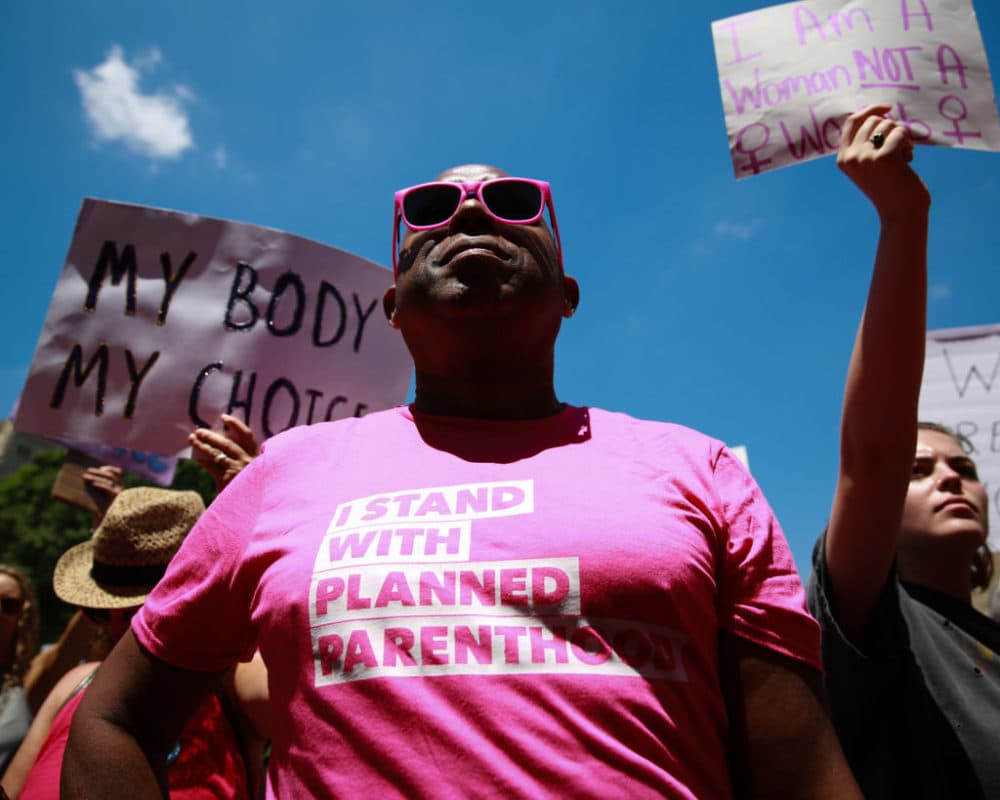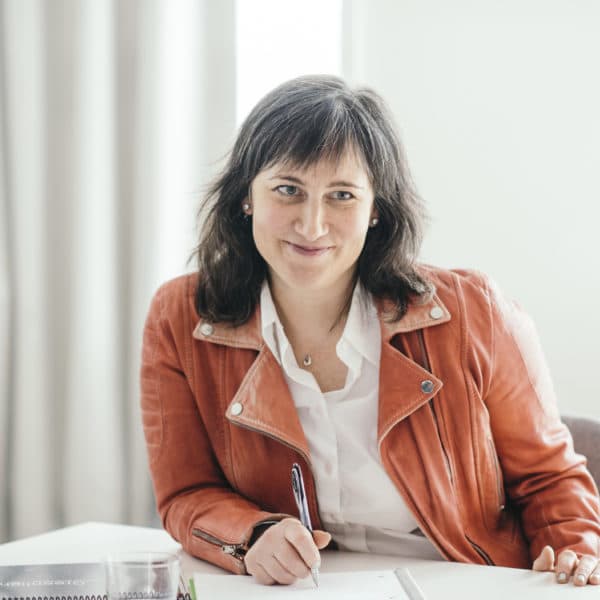Advertisement
Commentary
We need more men to fight for abortion rights

When the news broke last week that Roe had been overturned, the sinking feeling was familiar. It felt like the last time an elephant took up residence on my chest, in the wee hours of that Wednesday morning in 2016, when the presidential election was called for Donald Trump. I can’t rally again, I thought.
I’ve spent nearly three decades in the trenches of political campaigns, helping candidates run for everything from city council to president of the United States. In my “downtime” I’ve studied what makes social movements successful, earning several advanced degrees in the process, so I could bring those learnings to the fight.
“I’m so tired. I just want to leave,” I thought. It hurts too much to keep trying to make things better in a country that just doesn’t love me back.
Maybe my husband and I should take our three daughters to his native England, where pregnant people not only have the right to choose, but are also guaranteed parental leave and health care.
The day after the Dobbs was handed down, I lay in bed and ate cookie dough ice cream (that only made me feel sicker), and tried to explain to my three young daughters why I was so upset. My husband comforted me in the most certain way he knew how — keeping our kids occupied so I could be alone. I knew he didn’t want to return to class-entrenched England, where he grew up as the son of immigrants. I knew he wanted to help. But besides letting me be sad, he wasn’t sure what to do.
[W]e need more men to work through that discomfort, to understand the value they bring to the conversation and use their power.
Wondering if I’d had a personal experience with abortion that had paralyzed me, he asked me directly, “Have you ever had one?” It was the first time in our 15-year relationship the topic had ever come up. I was grateful for how gently he asked the question, because it gave me the chance to explain how powerless I feel at this moment.
I think my husband felt awkward and uncomfortable making the inquiry. But the reality is we need more men to work through that discomfort, to understand the value they bring to the conversation and use their power. People like me aren’t the only ones who will be affected by the overturning of Roe. The majority of people who identify as men support legal abortion, and their voices are essential.
Like it or not, men listen to other men in a way they don’t listen to women — research shows this to be true. Political scientists Tarah Williams and Paul Testa found that many men were persuaded by a message about women’s rights — but only when it was delivered by another man. According to their research, when the same message was delivered by a woman, support for women’s rights decreased.
Advertisement
Consider abortion rights in Ireland. Irish men who used hashtags including #men4yes and #ladsforchoice were credited with providing critical votes for the successful abortion legalization campaign waged in 2018. Their support signaled that the campaign had reached beyond its expected base of support. In the U.S. the conservative right has employed a similar strategy, carefully deploying women to deliver its anti-choice messages and profiling their efforts. This, despite the data that the vast majority of women believe abortion should be legal.
When men use their bodies to march and protest, they can provide an important visual message — that they too are affected by abortion bans. A study of young men with pregnant partners found that those whose partners had an abortion were nearly four times more likely to graduate from college than those whose partners gave birth. Their stories, sadly, may be more impactful than those of women. Especially since gender inequality is alive and well, and the success of social movements, frustratingly, depends in part on how “deserving” and “valuable” we deem the people affected. One example: a turning point in the AIDS crisis came when middle-schooler Ryan White became a public face of discrimination. His story helped to turn the tide of public opinion.
People with uteruses shouldn’t be the only ones charged with baring their souls and making themselves vulnerable.
Men can also take concrete steps to claim responsibility for their own reproduction. My cousin Gavin told me he is considering getting a vasectomy. The mere mention of the idea made my heart sing. After all, it's a relatively simple, outpatient procedure — and it’s reversible. (Plus it’s possible to set aside sperm in advance of the procedure, should a man wish to procreate later in life.) If a vasectomy strikes you as onerous, I’d suggest considering the weight of the reproductive burden that women have borne for thousands of years.
Finally, men should tell their own stories. People with uteruses shouldn’t be the only ones charged with baring their souls and making themselves vulnerable. We know that empathy is key to political persuasion, and it is generated when we hear personal stories. Those who know someone who has had an abortion — a close friend or family member, even themselves — are more likely to believe that abortion should be legal. We need more men to do what New York Mayor Eric Adams did when he shared the story of being faced with a pregnancy at the age of 15, and his then-partner’s decision to have an abortion.
Most importantly, people can’t allow their own fears of doing the wrong thing in the wrong way to keep them from doing something. Sure, you might make a mistake, and that mistake might be pointed out to you. But you will learn and you will do better, and then you will have made a difference. My message to men is step up: don’t leave us alone with this.
